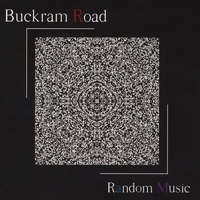First, a few good recent items regarding consolidation here, here and here. It seems as though some of the thinking is starting to agree with the concepts proposed here (among other sources). More on hyperlocalism here.
Education, communication and proper analysis first. If that leads to consolidation through public referendum, so be it. We can't start with the determination that consolidation is the answer, then look for the analysis to back up the claim. That's a disingenuous approach to solving this particular issue.
In Part One we posed the question as to whether "In the near future, will communities and individuals rely more on one another for accurate information than on the media or government?"
What information, in fact should we require from our traditional media and or government? Who can we trust?
If we proceed on the notion that most people have a fundamental distrust of government and that one of traditional media's primary responsibilities is to "watch" government for us and to report fairly and accurately what they find, then we are probably not too far off base. The more interesting phenomenon is the rise of bloggers and other "non-traditional" media who are "watching" and reporting on the traditional media. What used to pass for fair and accurate reporting and commentary, is now subject to a whole new and more powerful layer of scrutiny.
Is this a good development? That depends upon many factors. With government we can get most of the information we seek through FOIL and always have the option of electing someone new if we don't like the direction of our government. Not always easy, but then democracy wasn't designed to be easy. The proposals presented here and here are an attempt to make information more understandable and accessible for productive purposes.
With traditional media the issues are more difficult. One never really knows whether all the relevant information is being presented or just that information that particular media outlet wishes us to have. As "private" entities, that is their right.
What non-traditional media gives us is an alternative. A sort of "from the ground up" approach to news and information that recalls the days of the village green and the sort of free expression we all covet. Of course, this type of freedom has pitfalls as well. Bloggers, citizen journalists, bulletin boards and anonymous web sites may spew terrible and inaccurate information without any oversight. At least traditional media goes through the motions of ensuring fairness although there is a growing movement among bloggers as well for a code of ethics.
Is there a workable nexus between public information, traditional media and the new media? Perhaps, if we recognize that no system, person or organization will be perfect and we allow ourselves to be open to new ideas and methodologies.
Is is naive to think that there is a "critical mass" of individuals and organizations on Long Island who can come together for such a project? Again, perhaps. But if we don't, we will doom ourselves to constantly "chasing our tail" with static reports that sit on a shelf and eye catching headlines which may sell papers but only serve to further bad feelings among the different groups on Long Island.
In Part Three we will explore some possible methods for "lowering the temperature" and elevating reasoned debate in an attempt to form a productive path for Long Island's future.
Subscribe to:
Post Comments (Atom)











































No comments:
Post a Comment